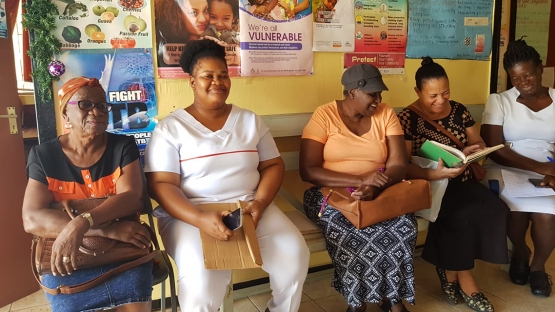The IAEA, in collaboration with the Pan American Health Organization and the International Agency for Research on Cancer (IARC), recently sent a team of experts to conduct a cancer control situation analysis in Guyana, following the country’s request for support as it faces an increasing number of cancer cases.
“Our healthcare professionals are trying very hard and we have the capacity to develop, but we need technical support to become self-sufficient in cancer control,” said Guyana’s Minister of Public Health Volda Lawrence, who approached the IAEA at the 2018 World Health Assembly seeking support. “We particularly need to build our national radiation safety and security infrastructure at the health facilities. To help reduce cancer incidence and mortality, we require assistance to design a national cancer control plan, grounded on proven technical knowhow and expertise.”
According to the IARC, the annual numbers of new cancer cases and related deaths in Guyana are expected to rise by almost a third by 2030. Breast and cervical cancers constitute nearly two-thirds of all new cases among women, and prostate cancer constitutes nearly 50% of all cancers among men.
In 2000, Guyana established a national cancer registry and surveillance system to capture patient data as well as disease trends and patterns. The Ministry of Public Health plans to strengthen registration capacities to help guide effective national cancer control planning and investment decision-making.






